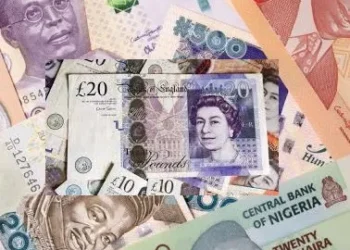The Central Bank of Nigeria (CBN) has announced that personal remittances into the country reached $20.93 billion in 2024, representing an 8.9% year-on-year increase. This figure marks a substantial recovery and highlights the growing influence of diaspora contributions on Nigeria’s external finances.
In a statement released on Wednesday by the CBN’s Acting Director of Corporate Communications, Mrs. Hakama Sidi-Ali, the apex bank linked the uptick in remittances to renewed confidence in formal channels and the success of recent macroeconomic reforms.
Surging Diaspora Inflows
According to the CBN, inflows through International Money Transfer Operators (IMTOs) recorded a significant leap, increasing by 43.5% to $4.73 billion in 2024, up from $3.30 billion the previous year. The rise, the bank noted, reflects stronger engagement from the Nigerian diaspora and a return to official remittance pathways.
Additionally, official development assistance also saw an uptick, growing by 6.2% to $3.37 billion.
“The growth in remittance inflows and other external sources underscores the resilience of Nigeria’s external sector and its growing appeal to international investors and development partners,” the statement read.
Broader Economic Gains
The increase in remittances forms part of a broader rebound in Nigeria’s balance of payments. In 2024, the country recorded a surplus of $6.83 billion, reversing deficits of $3.34 billion and $3.32 billion in 2023 and 2022 respectively. The current and capital accounts jointly posted a surplus of $17.22 billion.
Key drivers of the surplus include a trade balance of $13.17 billion, bolstered by a 48.3% surge in gas exports to $8.66 billion and a 24.6% increase in non-oil exports, which reached $7.46 billion. At the same time, petroleum imports declined by 23.2% to $14.06 billion, while non-oil imports dropped by 12.6% to $25.74 billion.
Investment Trends and Reserves Growth
While foreign direct investment (FDI) decreased by 42.3% to $1.08 billion, portfolio investment inflows more than doubled, rising by 106.5% to $13.35 billion. In addition, resident foreign currency holdings grew by $5.41 billion, contributing to the overall net acquisition of financial assets, which stood at $12.12 billion for the year.
Nigeria’s external reserves also saw positive momentum, increasing by $6 billion to close the year at $40.19 billion—its highest in nearly three years.
The CBN highlighted that improvements in data quality played a role in strengthening confidence in financial reporting. Net errors and omissions dropped by 79.5% to -$5.10 billion, down from -$24.90 billion in 2023.
Policy Reform Driving Growth
CBN Governor Olayemi Cardoso, in his reaction to the figures, emphasized the importance of ongoing economic reforms.
“The positive turnaround in our external finances is evidence of effective policy implementation and our unwavering commitment to macroeconomic stability,” he said. “This surplus marks an important step forward for Nigeria’s economy, benefiting investors, businesses, and everyday Nigerians alike.”
The strong remittance figures and broader external improvements reflect a renewed economic trajectory for Nigeria, with continued reforms and diaspora engagement seen as key pillars for sustaining this progress.










